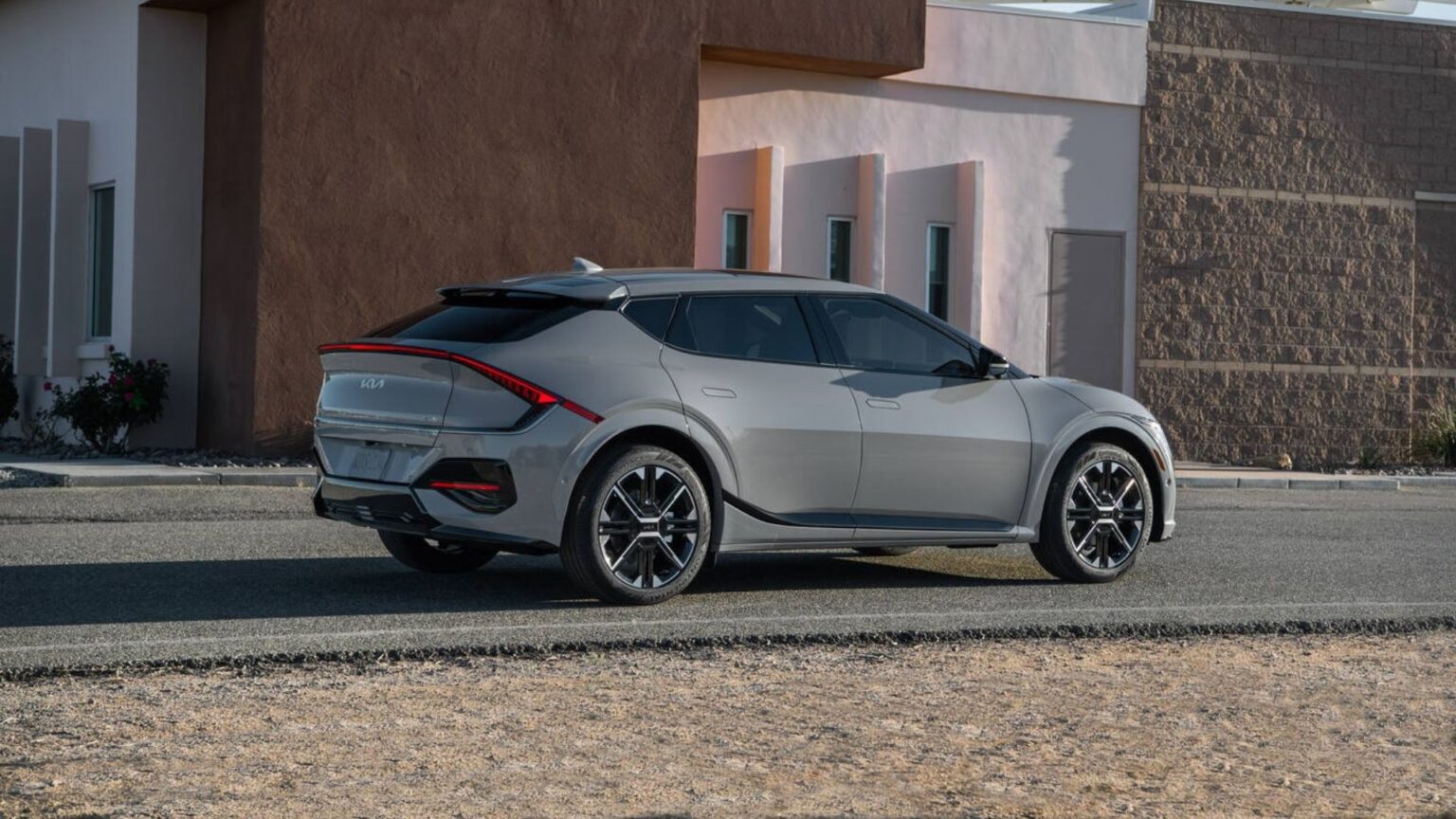The revamped $7,500 tax credit was supposed to be one of the big wins of the Biden White House’s Inflation Reduction Act. It did spur growth in EV purchases that continued all the way through the first quarter of this year. But there’s one not-so-small error in the implementation. In case you bought an EV last year, you need to understand what’s going on, because it could cost you $7,500. And if you were banking on that, you could be in for a rude awakening.
A Funny Thing About the IRS and Car Dealers
Ok, not funny “ha-ha,” especially if you’re a customer caught between the red tape of buying an EV and the federal government. More like, #thisisnotshocking because the way the new system for claiming tax credits was designed to work was that, as you purchased or leased your electric ride, your dealer was supposed to use a new portal and register that car with the IRS. But said system had a clock on every sale. And if the dealer got behind—or, according to some reporting, simply never knew they had to report that sale within 72 hours—the portal would lock. Your car would never be registered as counting toward the tax credit. Oopsie.
Fixing It
In case you were wondering, this wasn’t on you. The system was all on the dealer, and you didn’t fail to know something or do something. But apparently, the National Automobile Dealers Association heard from enough of its clients (i.e., dealers frosted by the problem), that the NADA lobbied the IRS and the latter has come up with a fix. Now dealers can log back in and register cars they never ticked on the IRS’s ledger in the first place.
Of course, you should be wondering how you’d know if your car wasn’t registered. The answer could come in two forms.
First, if you’ve already filed your taxes and the car was rejected, the IRS or your tax prep person would’ve alerted you. Second, and this isn’t an issue for you personally, the dealer could’ve taken the $7,500 off your purchase price at the outset, which was part of the advantage of the revised law, since it meant you were paying less out of pocket up front. In that case, the mess is left with the dealer, not you. You got your discount. If they failed to register your car, they’re chasing the backlog of paperwork.
TopSpeed’s Take
On the possible chance you’ve filed for an extension on your taxes, and had planned to claim the credit down the line, contact your dealer, pronto! You want to be dead certain they know the portal is back open and to file your car in the system. According to reporting at USA Today, only seven percent of purchasers delayed the credit, and the vast majority of buyers took the dough up front to knock it off the car’s purchase price. Be warned then, to not also try to take the credit a second time, which is illegal.
Likewise, if you leased an EV you should’ve received the credit as a discounted monthly lease payment, not as a direct tax credit, which only the dealer can claim. So you shouldn’t be trying to make such a claim yourself after the fact.
Lastly, per the IRS, you cannot claim the credit if your joint income is above a certain threshold. For married couples, that’s making more than $300,000 in 2024; or $225,000 for heads of households; or $150,000 for all other filers.
Read the full article here


